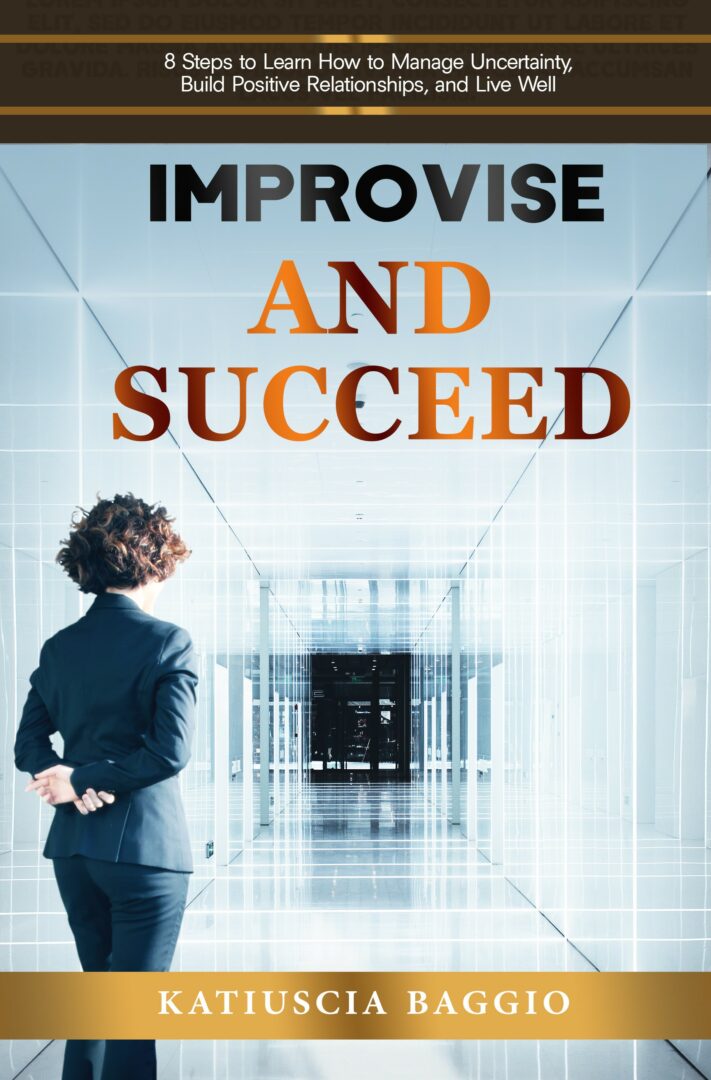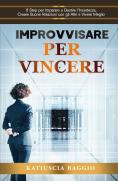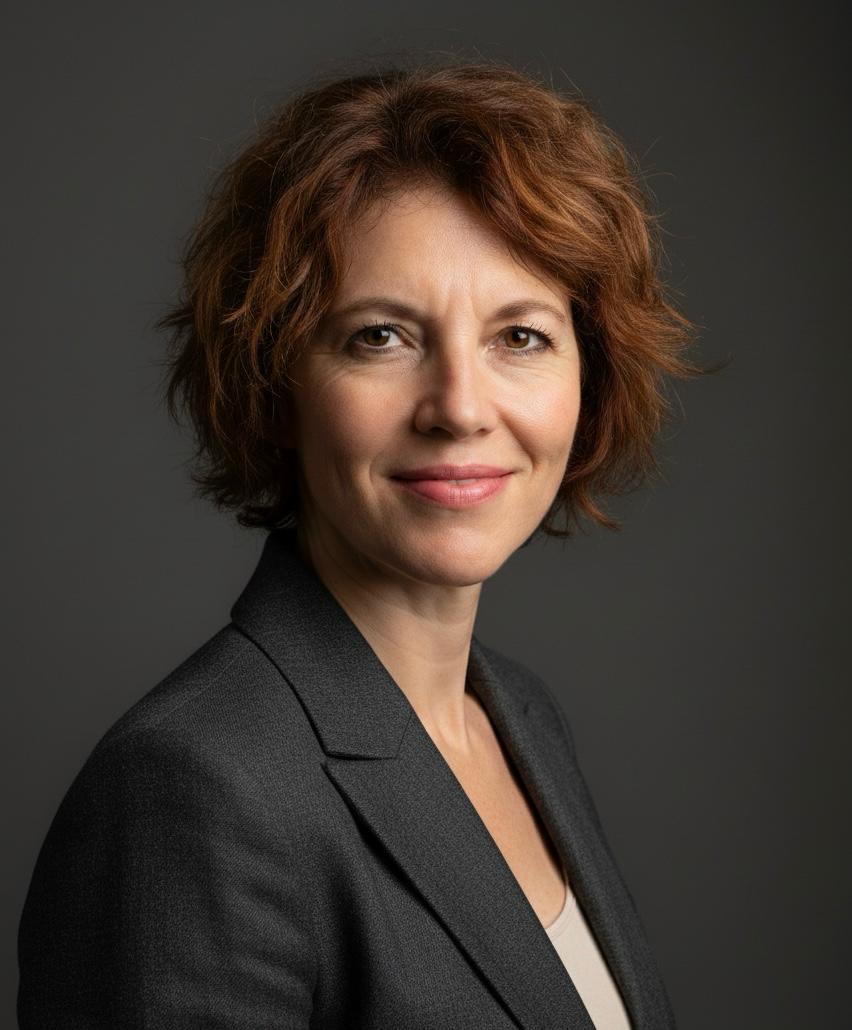We recently had the chance to connect with Katiuscia Baggio and have shared our conversation below.
Good morning Katiuscia, we’re so happy to have you here with us and we’d love to explore your story and how you think about life and legacy and so much more. So let’s start with a question we often ask: What is something outside of work that is bringing you joy lately?
I’ve always felt good spending time in nature, especially when hiking. Lately, I’ve noticed that simply being around plants and flowers also brings me joy—the colors, shapes, and variety feel exhilarating. Nature has this incredible ability to recharge me and make me lose track of time.
This connection has even influenced my work: I’ve started offering coaching sessions outdoors, walking in nature with clients. It creates space for fresh insights, helps them detach from their routines, and makes me more present too. Even when coaching online, I encourage clients to step outside and walk during our calls—the smartphone makes it easy. People love it, and they finish the session energized. It’s a simple but powerful way to combine fresh air, movement, and reflection.
Can you briefly introduce yourself and share what makes you or your brand unique?
I’m an executive coach and leadership facilitator with more than 20 years of experience supporting leaders and professionals in their growth. For nearly two decades, I worked in executive education, eventually becoming Director of Executive Education at CIMBA, a consortium of American universities in Italy, where I trained and coached undergraduate and MBA students, executives, and entrepreneurs from around the world.
In March 2019, I decided to step out of my comfort zone and become a freelance professional. I wanted to challenge myself, see what I was truly capable of, and create a way of working that combined online learning with in-person coaching and workshops. Since then, I’ve built an international coaching practice and an online academy, designing programs that help leaders strengthen their presence, communicate with confidence, and lead with authenticity—drawing on both coaching and improvisation skills.
What makes my work unique is the combination of deep listening, which allows clients to uncover their own answers, and the innovative approaches I bring, from improvisation techniques to outdoor coaching in nature. Right now, I’m especially excited about creating retreats in Italy for international leaders who want to recharge, reflect, and experience personal transformation—while also drawing inspiration from the history, music, and art of my country.
Thanks for sharing that. Would love to go back in time and hear about how your past might have impacted who you are today. What did you believe about yourself as a child that you no longer believe?
When I was a child, I often felt insecure. I believed I had to hide my euphoria and enthusiasm for life because they seemed to be ‘too much’ for others. At the same time, I struggled with a stutter, which on its own was already a heavy source of shame and bullying at school. And yet, despite this, I was also told that I talked too much, asked too many questions, and expressed thoughts that didn’t quite fit the way people around me were used to thinking. In a few words, I was seen as a little strange.
For a long time, I believed that story about myself—that being different was something negative. But over the years, with the help of teachers, mentors, psychotherapists, and, most importantly, my former bosses at CIMBA Italy, I discovered another perspective. I learned that what in one environment had been called ‘strange’ could, in another, be recognized as strengths, even as gifts.
Of course, that little voice of insecurity still shows up from time to time. The difference is that today I know how to talk with it, to use it in my favor rather than let it silence me—at least most of the times.
So, to answer your question: as a child I believed there was something wrong with being different. Now I still see myself as different—but in a way that makes me proud.
What fear has held you back the most in your life?
I would say the biggest belief I carried as a child was the fear of speaking in public and being ridiculed, which was deeply tied to my stuttering. Back then, it felt like an enormous roadblock. The stutter gradually faded, almost completely, around the age of 15—but by then, I had already built part of my identity around it. In reality, it wasn’t so much the lack of fluency that held me back, but the fear of not being able to speak at all.
Ironically, when public speaking later became part of my job, I realized I actually loved it—and that I was good at it. Yet somewhere deep inside, a trace of that old belief remained: that I couldn’t do it. Over time, I managed to overcome that fear, but I can also see how many opportunities slipped away—moments where I could have spoken up but didn’t, because fear had the last word. Sometimes I even wonder: was it truly fear, or was it simply an excuse I gave myself for not wanting to do that particular speech or task? Deep down, I know I’ve always been the same rebellious girl I was as a child—and that spirit still shows up today, in new ways.
The fear of public speaking no longer exists in the same way, but it hasn’t entirely disappeared. Let’s just say it no longer stops me from doing what I want to do.
So a lot of these questions go deep, but if you are open to it, we’ve got a few more questions that we’d love to get your take on. What’s a belief you used to hold tightly but now think was naive or wrong?
As a teenager, I believed in the power of reasoning almost like it was a superpower. I was passionate about philosophy, logic, and rhetoric—they gave me a way to prove I was smart and, deep down, they helped me cope with the insecurity I carried inside. Winning an argument made me feel strong and in control. For years, I thrived on debates where the real prize wasn’t understanding each other—it was proving I was right.
Then I came across a phrase that changed how I saw things: ‘You can be right, or you can be happy.’ It sounded simple, but it hit me hard. I realized that many times when I thought I was ‘winning,’ I was actually losing—losing connection, trust, and joy in the conversation. At work, this often shows up in another way: you can be right, or you can be useful—or effective.
As a coach, I see this pattern in so many people I work with. They listen not to understand, but to reply—to show they know the answer, to prove they’re right or well-prepared. But that habit gets in the way of real connection. The moment someone shifts from listening to reply, to truly listening with attention—even when they don’t agree—something changes. The relationship improves, trust grows, and the whole dynamic feels lighter. This is just as true in the workplace as it is in personal life.
When I started coaching in 2007, this lesson became even clearer. In leadership, business, and creativity, the real power doesn’t come from proving yourself—it comes from listening. Listening builds trust, encourages collaboration, and creates the space for new ideas. Logic can help you win in the moment, but listening helps you build something that lasts.
What I once thought was strength—the thrill of being right—I now see as a weakness. Real strength is quieter: it’s putting the ego aside, paying attention, and letting others feel heard. That’s where growth happens, relationships deepen, and real breakthroughs are born.
Okay, so let’s keep going with one more question that means a lot to us: How do you know when you’re out of your depth?
I usually know I’m out of my depth when I feel a mix of anxiety and hesitation that isn’t just the normal challenge of growth. For me, it’s often tied to situations where I sense I can’t fully rely on my expertise or presence to navigate what’s happening—when the usual tools I trust, like preparation, listening, and adaptability, aren’t enough.
Physically, I notice subtle signs: tension in my body, shallow breathing, or a rising sense of being ‘on edge.’ Mentally, I might find myself overthinking, second-guessing every choice, or clinging to control. Those are signals that I need to slow down, step back, and restore my energy.
Slowing down my pace, moving physically with hiking and walks in nature, mindfulness, and journaling are ways that help me—and many others—recalibrate, regain well-being, and find a sense of peace. In the past few years, I’ve started to integrate these practices into my coaching, offering sessions and trainings in nature, where clients walk, pause, and reflect. I’ve noticed that this sparks insights and a deeper sense of calm.
I’m now expanding this approach to include art and history, creating experiences in cities rich in culture like Venice, as well as smaller historical borghi, like Asolo where I live. These one-day experiences or retreats combine coaching, improvisation, and reflection, giving participants space to stop, learn from the greats, and reconnect with their creativity—which often stays hidden for people in managerial roles. What I love about this is that, apart from helping my clients, I systematically adjust my methodology to respond to my personal needs as well as the needs of my clients. It’s a win-win deal! I’m starting to do this in partnership with other coaches who are also friends, which adds to my own sense of excitement, peace, and well-being.
Recognizing when I’m out of my depth, and giving myself and my clients the space to pause and recalibrate, has become one of the most powerful ways to grow—both personally and professionally.
Contact Info:
- Website: https://www.katiusciabaggio.com
- Linkedin: https://www.linkedin.com/in/katiusciabaggio/
- Other: https://14158.freshlearn.com/ImproviseAndSucceedAcademy


so if you or someone you know deserves recognition please let us know here.




